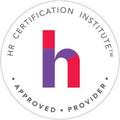Utilizing AI and Collaboration to Build an Innovative Workforce with BDO's Rob Wellen
The Next Practices Weekly call series has become a well-attended and wide-ranging discussion for HR leaders each Thursday at 11am ET / 8am PT. On this week's call, i4cp Senior Research Analysts Katheryn Brekken and Tom Stone were joined by special guest Rob Wellen, Managing Director, Data & AI, at BDO Digital. Here are some highlights from the call:
- We began by asking the following poll question of event participants: "If you could use AI to predict the future, what would you want to know? (Select your top two)"
- 52% - The winning lottery numbers
- 35% - Major world events
- 28% - Future technological advancements
- 22% - Personal life milestones
- 8% - Sports outcomes
- Wellen noted that last year (2023) was the very fast growth year for AI, particularly generative AI, with over 100 million people starting to use it in three months. So education needed to grow quickly as well, about what it is, what it is not, and what you can do with AI today. This year, on the other hand, many organizations are focused on getting their basics / foundations for AI infrastructure, talent, etc., in place so they can accelerate AI use in 2025 and beyond.
- Brekken noted that 2024 is also the year of "trying"--as in people trying out AI tools in various ways. Even if your organization is not an AI innovator or otherwise allowing generative AI use internally yet, employees need to try using ChatGPT or other publicly available tools at home for personal use cases.
- Wellen noted that there is also some FOBO out there -- Fear Of Becoming Obsolete. So a lot of the continuing education, and encouragement of trying it out, is to put the reality of AI into context, e.g., it will most often be used to augment and extent human capability, not entirely replace humans in most workstreams.
- We asked the following poll question of event participants: "Which outcomes has your organization seen in its use or experimentation with using AI in HR so far? (Select all that apply)"
- 45% - It’s too soon to tell
- 47% - Time savings
- 43% - Increased productivity
- 15% - Enhanced quality
- 10% Ability to divert employees to new tasks
- 7% - Reduced human error
- 5% - Cost savings
- 5% - Increased data privacy/security risks
- 1% - Reduced burnout
- 1% - Reduced jobs/positions
- Wellen noted that many of the most common uses of automation and AI today are very simple things -- robotic process automation regarding optimizing email processes, file movement, Excel and other data processing tasks. Low-level, rules-based tasks are the most common today and likely will be for some time, because they are simple to think of, program, and get benefits from.
- We asked the following poll question of event participants: "In which of the following ways do you personally use generative AI at work? (Select all that apply)"
- 56% - Drafting emails or other correspondence
- 44% - Researching information
- 33% - Creating presentations or training materials
- 28% - Creating interview questions
- 24% - Analyzing / interpreting data
- 23% - Writing job descriptions
- 19% - Creating drafts of policies
- 11% - Creating images
- 23% - I don’t use generative AI at work
Links to resources shared on the call:
- Upcoming i4cp virtual events
- i4cp's Next Practices Now conference
- Information on i4cp Membership
- i4cp's AI resource collection (includes both member-only and public resources)
To ensure open discussion, this event is exclusively for HR practitioners. Vendors and consultants are not permitted to attend.
This event is approved for certification credits.








